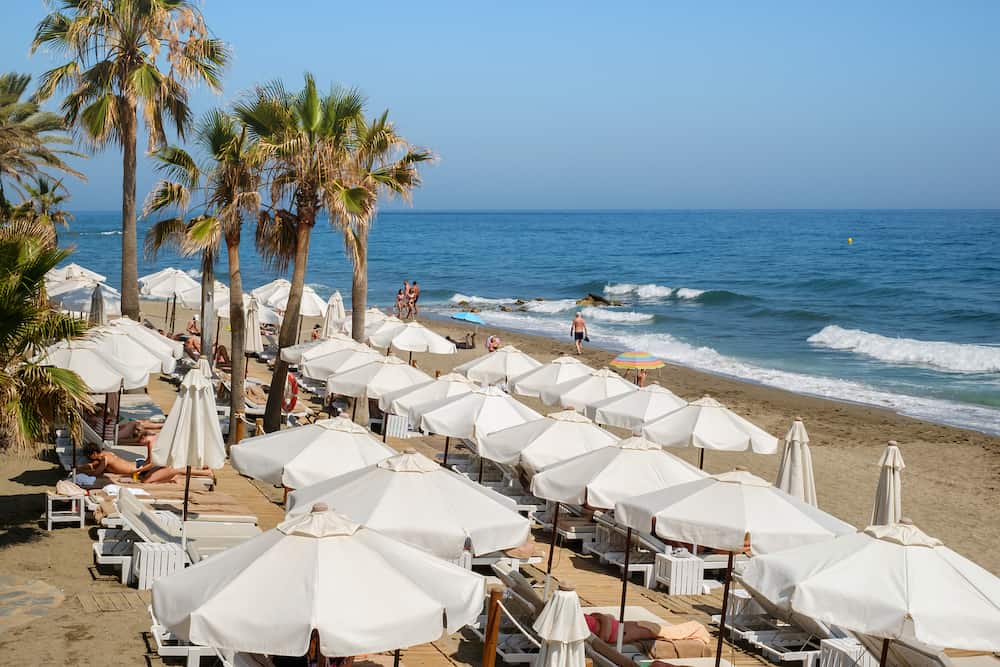Tipping in Spain Guide | When and How Much to Tip in Spain
Spain is one of those countries that have made it to the top of all our lists, with it being such a beautiful country with a rich history and a diverse culture.
When visiting Spain, expect a wonderful blend of traditions, modernity, and stunning landscapes that add to the appeal and attract people from all corners of the world. With it being such a hotspot for tourism and travel, is there tipping in Spain?
First, I would like to explain more about this fantastic country to help explain its tipping culture and everything that comes with it. Let’s start with Spain’s amazing weather. The country enjoys a Mediterranean climate, which means long, sunny summers and mild winters.
Making it a perfect year-round destination for tourists seeking sunshine and pleasant temperatures. Whether strolling through the historic streets of Barcelona, relaxing on the beaches of the Costa del Sol, or exploring the charming countryside of Andalusia, one can expect gorgeous weather.

Spain is also known for its vibrant culture. The Spanish people are warm and welcoming, and they have a deep passion for life. You’ll find lively festivals and celebrations throughout the year, with flamenco music and dance, bullfights, and delicious food.
Speaking of food, Spanish cuisine is another major draw. From paella to tapas, the country offers a variety of mouthwatering dishes. The food is fresh and often locally sourced, and it’s meant to be savoured slowly, accompanied by wine or sangria.
Regarding tipping etiquette in Spain, expect a different culture than other countries. Tipping is different there in comparison to places like the United States. In Spain, service charges and taxes are usually included in the bill, which means the price we see is the price we pay.
However, it’s not uncommon to round up the bill or leave some small change as a gesture of appreciation for good service. But there’s no need to tip excessively, as service staff are paid a decent wage.
The lack of a strong tipping culture may actually contribute to the relaxed and unhurried dining experience in Spain. It means we won’t feel pressured to leave a big tip, and we can take our time to enjoy our meal and the company of our fellow diners.
Plan your trip
Save on fees abroad with the Wise Card—use it at ATMs, restaurants, and for flights or hotels in over 150 countries. Manage 40+ currencies in real-time with the Wise app.
Need Help Planning?
- Cheap Flights: Find the best deals.
- Accommodation: From hostels to luxury stays.
- Car Rental: Affordable options worldwide.
- Sightseeing Tours: Explore without breaking the bank.
- Travel Adapter: One adapter for all your needs.
- Travel Insurance: Don’t risk it—stay covered.
This post includes affiliate links. Read my full disclosure and content policy.
Are you expected to tip in Spain?
The big question is, do you tip in Spain?
Tipping in Spain is less expected and more crucial than in some other countries, particularly in the United States. However, it is still appreciated and considered a polite gesture to leave a small tip as a token of our satisfaction with the service we’ve received. In Spain, tipping is more about showing gratitude than an obligatory practice.
Service charges and taxes are often included in the bill at restaurants and cafes. Hence, the price we see on the menu is typically the final price we’ll pay.
While there is no set percentage for tipping in Spain, it’s common to round up the bill or leave some small change, especially if we are pleased with the service. For example, if the bill is €37, it’s customary to round it up to €40 or leave a few extra euros.
Tipping in Spain at all-inclusive hotels, taxis and tour guides is also appreciated but not expected. We can round up the fare or leave some change for hotel staff and taxi drivers as a way of showing our appreciation.
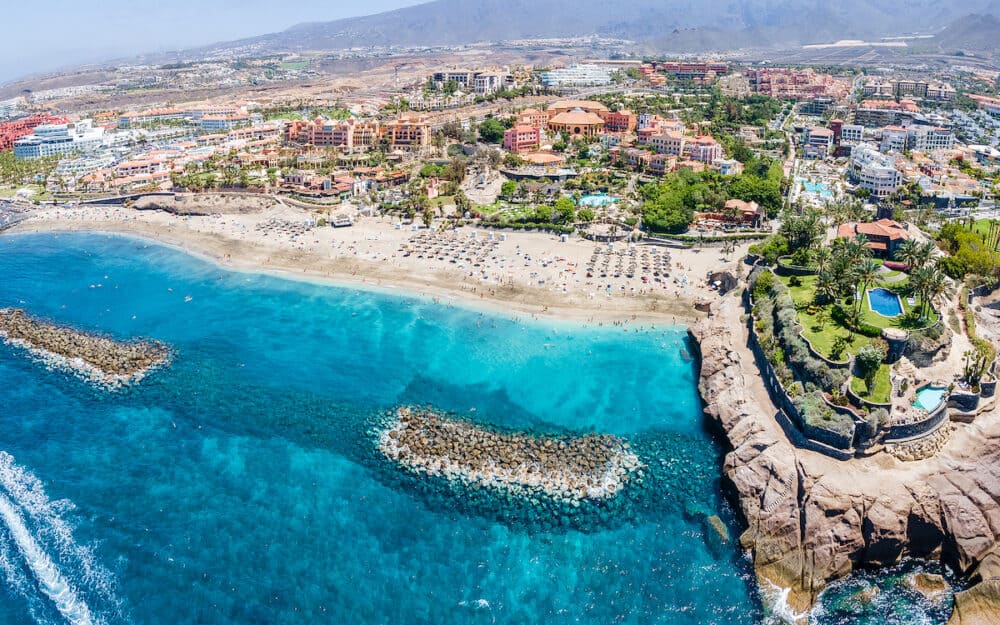
What’s the easiest way to give a tip in Spain?
Leave tips or cash on the table:
If we plan to dine at a restaurant, cafe, or bar, we can leave a small amount of cash on the table when we are finished. Either round up the bill or leave some spare change. It’s a straightforward way to show our appreciation for good service.
Tell the server:
If we’re paying our bill at the counter, we can tell our server we’d like to leave a tip. They’ll typically add the tip to our total bill. For example, we can say, “Quiero dejar una propina” (I want to leave a tip), and they will assist us.
Use a credit card:
Some establishments may provide the option to add a tip when paying by credit card. If this is the case, we can indicate the amount we’d like to leave as a tip on the payment terminal.
Thank your server:
In addition to leaving a tip, it’s considered polite to verbally express our gratitude to the server or service staff. A simple “Gracias” (thank you), along with a smile, goes a long way in showing our appreciation for their service.
Be discreet:
When leaving a tip, it’s typically done discreetly. We don’t need to make a big show of it. Leave the tip on the table or hand it to the server subtly to maintain a respectful and low-key approach.

When and How Much to Tip in Spain?
The other day, a friend of mine asked, ‘Do people tip in Spain?’ it was one of those moments where I wasn’t sure what to say because we do tip in Spain. Still, there are a couple of things to know and be aware of because, as I have mentioned before, unlike places in the US where tipping is expected, Spain follows a different protocol.
When should we tip?
When tipping in Madrid, I was once handed the money back since I had yet to notice the service charge mentioned in the final bill. So it’s best to tip at the end and whether it is even necessary.
How much should we tip?
This is entirely up to us and the quality of service we were given. In most restaurants, bars and cafes, rounding up your bill is a good indicator. Hotels do not expect a tip, but leaving a couple of bills can be an excellent show of thanks towards the staff. Consider rounding up the final number for taxis and tour guides, and spas or salons go by a general 10%.
While there are no fixed rules, being respectful and appreciative goes a long way. The amounts I’ve mentioned are approximate, and you can adjust them based on your satisfaction with the service. Ultimately, the most important thing is to be polite and appreciative when tipping in Spain.
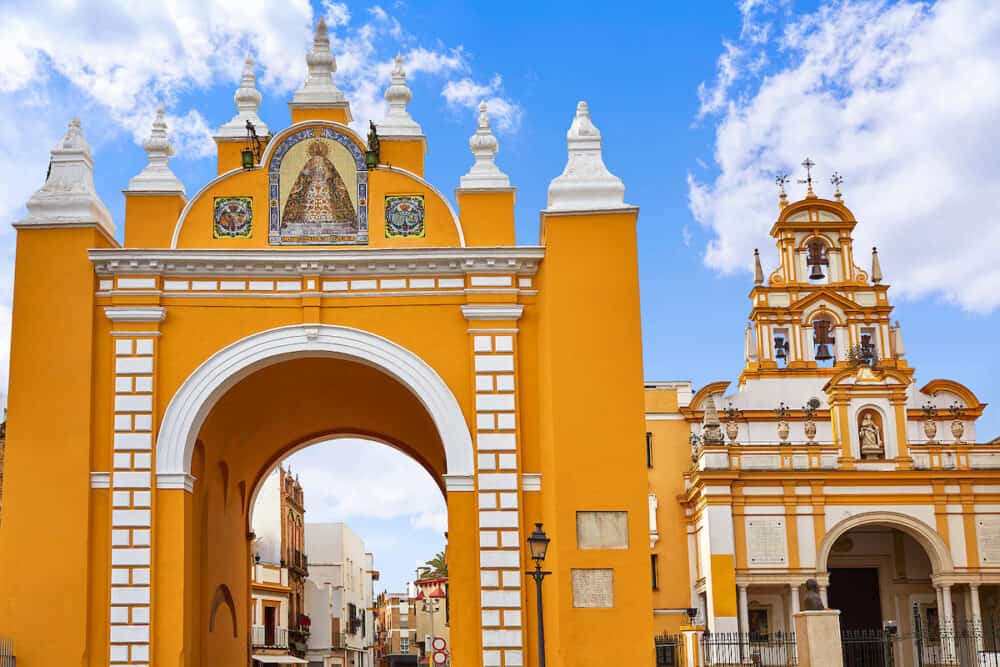
Can I tip in USD in Spain?
Tipping in USD in Spain is generally rare, and it’s often more convenient and well-received to use the local currency, the Euro (€). While some tourist-heavy areas and establishments might accept USD, it’s not the standard practice, and you may encounter unfavourable exchange rates if you tip in USD.
I recommend using Euros when tipping to ensure that the recipient receives the total value of your tip. You can obtain Euros from ATMs, currency exchange offices, or your bank before or during your trip. This way, you’ll avoid any confusion or inconvenience associated with using a foreign currency.

What Is A Reasonable Tip In Spain
What’s considered reasonable tips in Spain can typically range from a few euros to around 10% of the bill, depending on the service and your level of satisfaction. Below are a couple of guidelines that I have created to help you during your trip to this beautiful country:
Taxi & Uber Drivers
In Spain, tipping taxi and Uber drivers is unusual and not expected as it is in some other countries. However, it’s still a nice gesture to round up the fare or leave a small tip as a sign of appreciation for the service, depending on your situation.
Taxis:
When tipping a taxi in Barcelona- especially a traditional one – I usually round up the fare to the nearest convenient amount. For instance, if the food is €17.50, I’ll round it up to €18 and let the driver keep the change. It’s a simple and polite tip method without needing a specific percentage.
Uber:
With Uber, the app allows you to tip the driver electronically when you rate the ride. I often give a small tip via the app if I’ve had a pleasant experience. Like taxis, I might round up the fare to the nearest Euro.
The drivers are generally paid a fair wage, and there’s no strict tipping culture as you might find in some other countries. Also, be aware that many Uber and taxi drivers might not carry change, so it’s a good practice to have some small denomination bills or coins on hand if you plan to tip in cash.
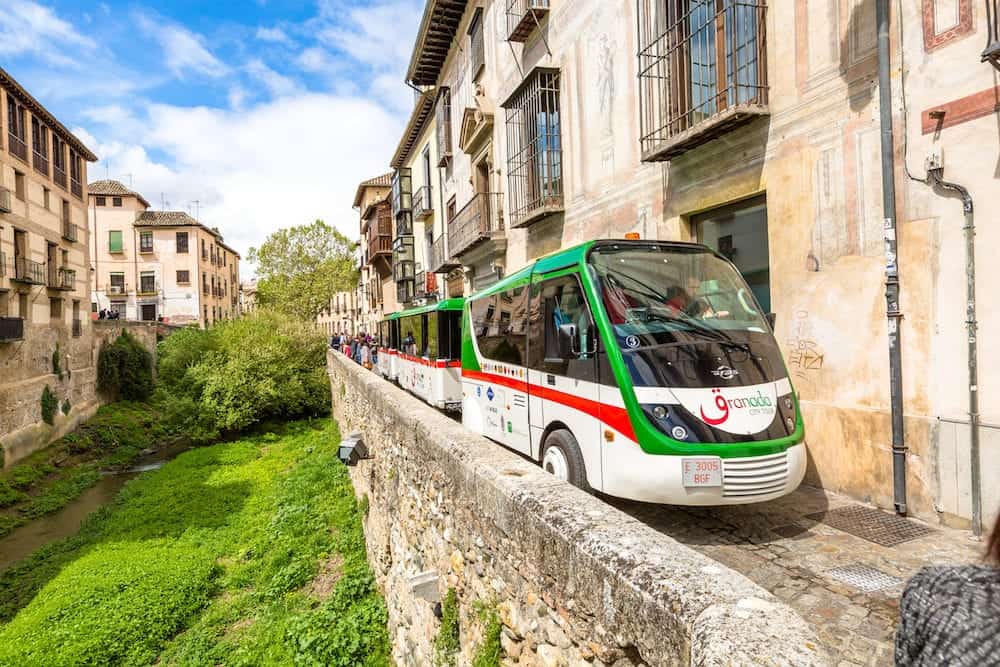
Tour Guides & Operators
Tipping tour guides and operators in Spain is a thoughtful way to show appreciation for their services, especially if we’ve had an enjoyable and informative experience.
Guided Tours:
For guided tours, such as city tours, museum visits, or cultural excursions, I usually consider tipping the guide around €5 to €10 per person. If the time was exceptional and the guide went above and beyond, I might lean toward the higher end of that range.
Tour Operators:
Suppose the tour experience involves not just a guide but also a company or tour operator. In that case, I consider a tip for the company as well. In such cases, I might add a similar amount (around €5 to €10 per person) as a gratuity for the tour operator or company in addition to the guide’s tip.
It’s good to be aware that some tour companies or guides may have a policy against accepting tips, so it’s a good practice to ask or check in advance if you need more clarification. Being polite and expressing your appreciation for their knowledge and the experience they’ve provided is equally valuable.
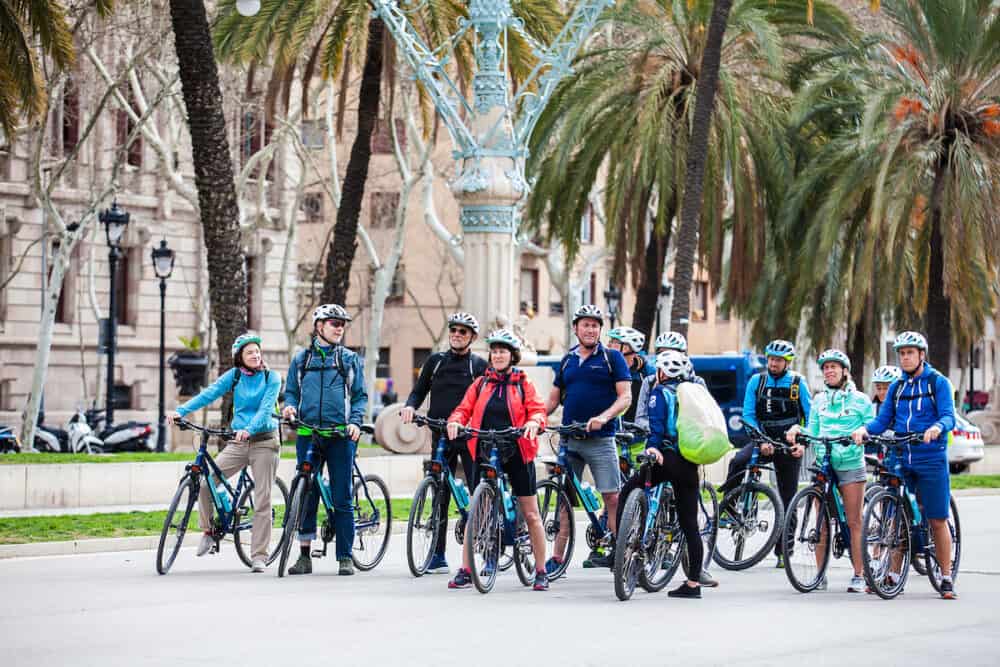
Spa & Wellness Places:
Due to the staff being highly-trained professionals in Spa and wellness-related places, their salary in Spain is high. They are well-paid for what they do, so it is okay to tip them, and it may even come across as rude.
Spa and Wellness Centers:
For services like massages, facials, and spa treatments, I usually tip around 10% of the total bill. If I had an exceptional experience or received particularly attentive service, I might tip a bit more.
Salons and Beauty Services:
In the case of hair salons or beauty treatments, I also tend to tip around 10% of the total bill. This is a common practice in Spain, and it’s a way to express gratitude for the work done by the stylists or beauty professionals.
When tipping at spa and wellness places in Spain, it’s essential to be aware of a few things:
Check the Bill:
Some establishments may include a service charge in the bill, so it’s a good idea to review your receipt to see if it is covered. If a service charge is included, additional tipping may not be necessary. However, leave a small extra tip if you wish.
Cash Tips:
It’s convenient to have some small denomination euro bills for tipping, as not all spa and salon professionals can access electronic payment methods.
Ask About Gratuity Policies:
In some places, there may be policies against accepting tips, especially in more high-end establishments. It’s respectful to inquire or check their tipping policy to avoid any awkward situations.

Hotel Staff
Do you tip in hotels in Spain?
Tipping hotel staff is a way to recognize their efforts in making your stay comfortable and enjoyable. The amounts I provided are approximate. Adjust them based on your satisfaction and the level of service you’ve received. Being polite and respectful in all tipping practices is the key to ensuring the gesture is well-received.
Here’s how I typically handle tipping hotel staff when I’m in Spain:
Housekeeping:
I usually leave a small tip for the housekeeping staff, typically around €2 to €5 per day, depending on the level of service and the hotel’s standards. I might leave it on the bed with a note expressing my thanks. Some travellers prefer to leave the tip at the end of their stay, but daily tips can be more rewarding for the staff.
Bellhop or Porters:
If a bellhop assists me with my luggage, I give them a euro or two for their service. If I have a lot of baggage or they’ve gone out of their way to help, I might tip a bit more.
Concierge:
Tipping the hotel concierge is not required, but if they provide exceptional assistance, such as making reservations or offering helpful advice, I might give them a small tip as a token of my gratitude, usually around €5 to €10.
It’s essential to be aware of a few things when tipping hotel staff in Spain:
Check the Hotel’s Policies:
Some hotels may have policies against accepting tips, especially in higher-end establishments. It’s courteous to inquire about their tipping policy to ensure clarity.
Use Local Currency:
It’s best to tip in euros, as it’s the local currency. Hotel staff may not readily accept other currencies, and using euros ensures they receive the total value of your tip.
Be Discreet:
When leaving tips, it’s a good practice to be discreet and leave them in a sealed envelope or with a thank-you note to show appreciation.
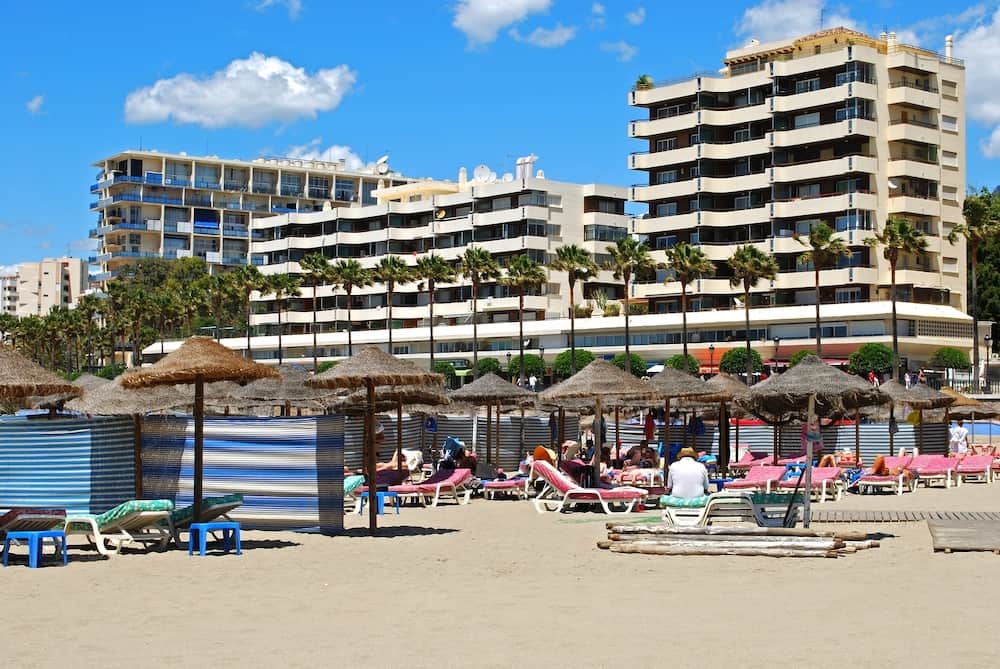
Cafes, Restaurants & Bars
Tipping culture in cafes, restaurants, and bars in Spain is relatively straightforward, and it’s a way to show appreciation for good service. It is a common thought to wonder how much you tip a waitperson or server in these different establishments. Here’s how I typically approach tipping in these establishments:
Cafes:
In casual cafes, I often round up the bill to the nearest Euro or leave some spare change as a tip. For example, if my coffee costs €2.50, I might round it up to €3, adding the extra €0.50 as a tip.
Restaurants:
In sit-down restaurants, the bill usually includes service charges and taxes. I typically round up the total bill or leave a small percentage, usually around 5% to 10%, as a tip. For instance, if my bill is €45, I might round it up to €50 or even leave €55 if I’m particularly pleased with the service.
Bars:
When having drinks at a bar, I commonly round up the price of my drinks or leave some change as a tip. If a drink costs €4, I might pay €5 and let the bartender keep the change.
It’s important to be aware of a few things when tipping in cafes, restaurants, and bars in Spain:
Check the Bill:
Look at your bill to see if there’s already a service charge included. In many restaurants, it’s standard to include a service charge, which means tipping is optional. However, you can leave a small additional tip if you wish.
Service Quality Matters:
If the service is exceptional, you can be more generous with your tip. Conversely, if the service is subpar, you must not leave a significant tip.
Cash Tips:
Carry some small denomination euro bills and coins for tipping, as not all establishments may accept electronic payments for tips.
Respect Local Customs:
Tipping practices can vary from place to place, so it’s good to be aware of the local norms. In some tourist-heavy areas, tipping might be more expected.

Food Delivery
Regarding food delivery in Spain, tipping is a gesture of appreciation for the convenience and service. Here’s how I typically handle tipping for food delivery in Spain:
Tipping Amount:
I usually tip the delivery driver around 5% to 10% of the total order value. Suppose the service was exceptionally fast or the food arrived in excellent condition. In that case, I might lean toward the higher end of that range.
Cash or Online:
In Spain, many food delivery services offer the option to tip online when placing your order. If I choose this option, I enter the tip amount when paying for the order. Alternatively, if I pay in cash upon delivery, I hand the driver the tip directly.
Check for Service Charges:
Some food delivery services include a service fee or delivery charge, which may go to the driver or the company. Check your receipt to see if these charges are included, as they can influence your decision to tip.
Quality of Service:
The quality of service matters, and I adjust the tip accordingly. If the delivery is timely and the food is hot and well-packaged, I’ll tip the higher end of the range.
Courtesy:
Being courteous when giving a tip is essential. A simple “gracias” (thank you) and a smile can go a long way in showing your appreciation.
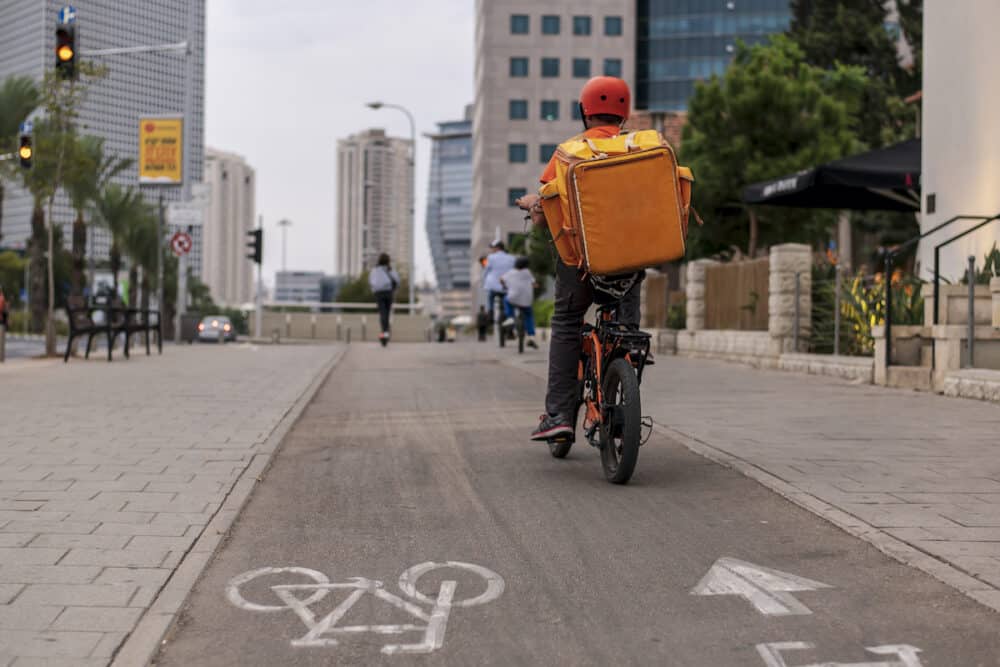
Street Vendors & Markets
It’s essential to be aware that tipping street vendors at markets in Spain is not a standardized practice, and the amounts are usually small. While it’s appreciated when given, it’s not an obligatory custom.
However, there are some situations where a small tip or change can be appreciated. This is how I approach tipping in these situations:
Street Performers:
In some tourist areas, you might come across street performers or musicians. If I enjoy their performance, I often drop a few coins or small bills into their collection hat or instrument case as a gesture of appreciation.
Small Change:
When purchasing from street vendors at markets or buying items from local artisans, I usually pay with the exact amount or round up the bill to the nearest convenient amount. For example, if something costs €9.50, I might give them €10 and let them keep the €0.50 as a small tip.
Food Markets:
In food markets, like the famous La Boqueria in Barcelona, there are often small food stalls where you can buy snacks or street food. It’s common to round up the cost to the nearest Euro, but tipping isn’t expected.
Bargaining:
In some markets, haggling or bargaining is customary. If I negotiate a lower price for an item, I may give the vendor a little extra as a sign of goodwill, but it’s not mandatory.

Airport Staff
Tipping airport staff in Spain is not a common practice, as most airport personnel, such as security officers, airline staff, and baggage handlers, are typically salaried employees. However, there are a few scenarios in which tipping might be appropriate:
Baggage Handlers:
Suppose you have a significant amount of luggage, particularly at the curb or in the arrival hall. In that case, you can offer a small tip, such as €1 to €2 per bag, to the baggage handlers. This gesture is courteous and can be especially helpful if you have numerous bags or oversized items.
Porters:
Some airports have dedicated porters who assist with moving luggage. If you use their services, offering a tip of €2 to €5 is common, depending on the extent of the assistance and your satisfaction with their service.
Assistance for Passengers with Reduced Mobility:
If you require special assistance as a passenger with reduced mobility, tipping the staff who assist you is appreciated. You can tip based on the level of service and your discretion.
It’s essential to be aware that tipping at the airport is not mandatory, and not all airport staff are allowed to accept tips. Furthermore, some passengers may choose not to tip, as the services provided are part of the airport experience. If you decide to tip, using small denomination euro bills or coins is practical.
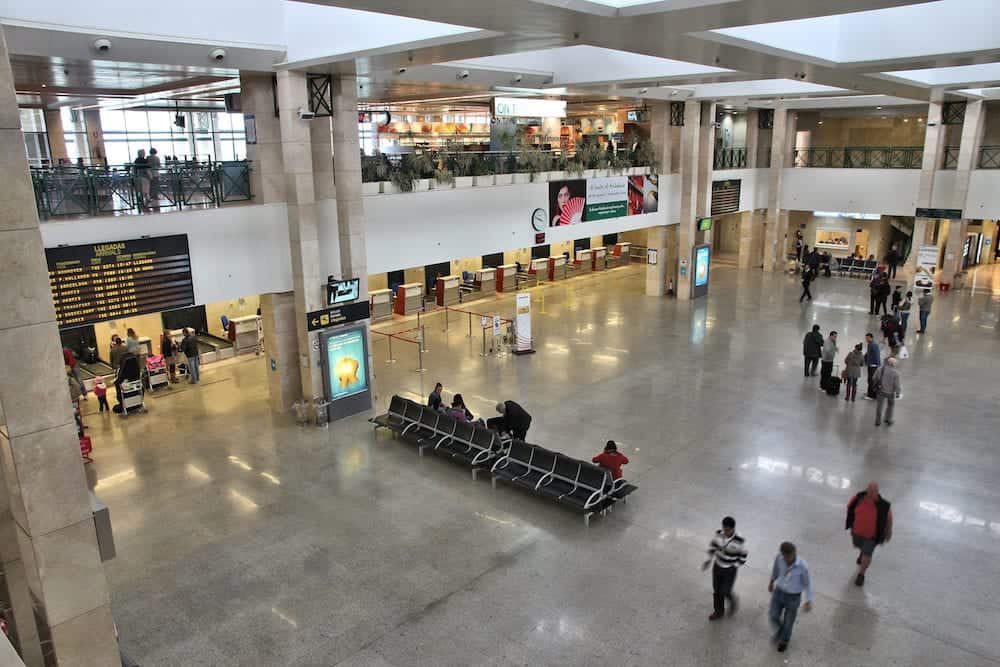
Conclusion
To conclude, Spain is not a country that expects or even accepts tips. After chatting to a couple of travellers, especially those from America – it’s something many have to get used to.
Spain is one of those places that prides itself on well-trained individuals, and more often than not, it can be seen as rude to give someone money when it is optional.
You might find in high-tourism areas that tips are welcomed, and as long as you are not stepping on anyone’s toes, then you are free to show your appreciation through the form of money.





